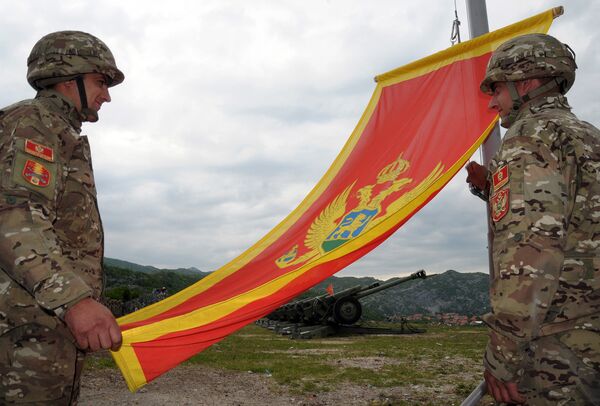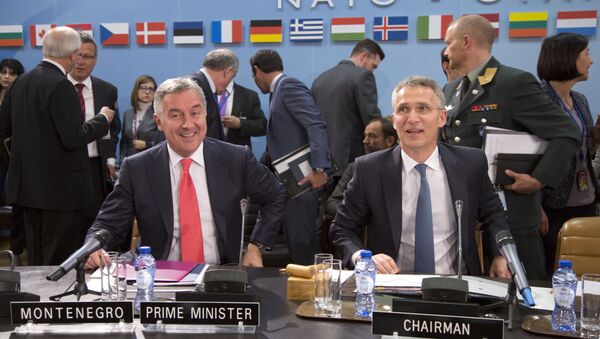The journalist noted that twenty-three of 28 NATO member states have already voted in favor of Montenegro's bid. the United States, Canada, Spain, Germany and the Netherlands have yet to announce their decision.
Meanwhile US lawmakers signaled their willingness to support Montenegro's NATO bid: the Senate Foreign Relations Committee voted in favor of the treaty with the Balkan state on January 11, 2017.
"I look forward to welcoming Montenegro into the NATO Alliance and continuing to support its path towards further Euro-Atlantic integration," Senator John McCain said in an official statement commenting on the matter.
"Because adding a nation to NATO is a treaty measure, support from two-thirds of senators is required to secure passage. But the Constitution delegates the power to negotiate treaties to the president and Trump could refuse to relay the ratification to NATO, indefinitely stalling the process," Hanna highlighted.

It is no secret that NATO's eastward expansion, including the possible admission of Montenegro to the alliance, remains a sensitive issue for the Kremlin.
"If we abstract from some media reports and statements, the attitude of the Russian Federation toward the further expansion of NATO to the east is well known. This attitude is negative," Kremlin spokesman Dmitry Peskov told reporters Tuesday.
Peskov added that the Kremlin would abstain from commenting on media reports on Montenegro accession to NATO. He said that Moscow has not yet received any official statement on the matter from the Trump administration.
"We were exposed to pressure aimed at blocking our accession to NATO, but we have resisted them due to the power of the state, its institutions, democracy and democratic principles," Markovic said in a reference to the opposition boycott, which he called "part of plans to destabilize Montenegro in political terms and disable it to become a member of NATO".
However, national polls, cited by Hanna indicate that only 39.5 percent of Montenegrins favor the country's NATO membership while 39.7 percent oppose it.
Furthermore, according to Andrei Kelin, the head of the Russian Foreign Ministry's European Cooperation Department, as of yet Montenegro has failed to meet the criteria for NATO membership.
Speaking to Sputnik in mid-December, Kelin expressed his concerns regarding Podgorica's ability to add to the Alliance's security.
"Montenegro is being dragged into NATO at an accelerated and strengthened rate. Montenegro does not meet in any way the criteria of membership in the alliance, which were developed in the past," Kelin warned, adding the country's economy is currently in deplorable state while its armed forces are comprised of less than 2,000 military servicemen.
Daniel Larison of the American Conservative echoes Kelin: according to the US commentator, bringing Montenegro to NATO "makes no sense."
"The alliance gains nothing from making Montenegro a member, and it takes on one more security dependent that we already know won't pull its weight," Larison said.
He noted that besides the fact that Podgorica adds "almost nothing to the Alliance," its NATO bid does not have broad support at home.
"It doesn't make sense to take in a new alliance member when there is no consensus in that country in favor of belonging to the alliance. NATO shouldn't be adding new members in any case, but it certainly shouldn't be taking in a country that doesn't have a majority behind the idea of joining," the US commentator noted.
In his article Hanna cited Senator Rand Paul who has recently raised concerns over a potential provocation against Russia.
"I think that many are referring to this as a provocation to Russia, and also, I think NATO is too big already," Paul said as quoted by the journalist, "Ultimately, joining NATO is not necessarily a benign thing."





